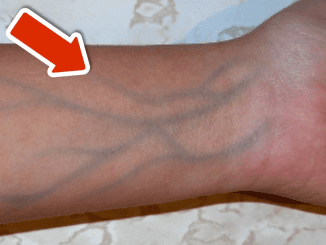
With the heat, sleepless nights increase, and to relieve hot flashes and get to sleep, we often resort to solutions that are far from healthy. This includes, for example, showering late and going to bed with wet hair. Going to bed without drying your hair is not recommended, as humidity not only damages it but can also have negative effects on your health.
Problems of sleeping with wet hair
Increased hair sensitivity: water and cuticle.
First, if hair is kept wet for too long, it becomes more sensitive. This is due to one of its properties called hygroscopic, which allows it to absorb moisture from the environment. Thus, water penetrates the cuticle, which increases its size. As a result, the hair’s proteins and components are looser, meaning they don’t compact as they do when it’s dry, and therefore can be lost. This is why, when it’s wet, it’s more sensitive to any force or manipulation.
Increased porosity of the hair surface.
As a result of this sensitivity, the hair becomes more brittle and is more easily damaged. It can dry out, break, etc., from constant rubbing against the pillow. The porosity of the hair surface will also increase, making the hair weaker, and this is one of the most common causes of hair loss.
Scalp Inflammation Due to Humidity
Furthermore, prolonged moisture retention, whether from sleeping with wet hair or wrapping it in a towel, causes scalp inflammation. All of this can lead to a very uncomfortable itching sensation that, even if unavoidable, will cause the sufferer to scratch, risking wounds that will most likely increase the itching.
Relationship between dandruff and humidity
On the other hand, dandruff’s worst enemy is humidity itself. Sleeping with wet hair alters the life of a fungus that lives on the scalp called Malassezia, which normally feeds on the fatty oils of the follicles to carry out cell renewal in the scalp. However, water alters this process; it multiplies and reproduces more rapidly, increasing cell turnover and, consequently, causing dandruff.
Tangles and Knots in Hair:
Going to bed with wet hair is synonymous with tangles. The evaporation of water during the night tends to cause knots in your hair, and head movements while sleeping are not helpful at all. Trying to remove them will lead to further hair loss by forcing the hair to unravel.
Other problems with sleeping with wet hair: headaches and colds.
It’s important to remember that the drawbacks of sleeping with wet hair can also lead to health problems. For example, it can cause severe headaches, migraines, or muscle aches. You may even wake up with a cold due to a sudden change in temperature.
Why is
it bad to sleep with wet hair? Going to sleep with wet hair can cause problems such as: increased hair sensitivity and increased porosity; scalp inflammation due to humidity; dandruff; hair tangles and knots; as well as headaches and colds.
Recommendations
: In any case, it’s important to dry your hair before going to bed, although it’s also best not to overuse the hairdryer. It’s best to gently rub it with a towel and use a wide-tooth comb to detangle it and prevent hair loss. If hair loss persists, it’s best to contact a hair health specialist.


